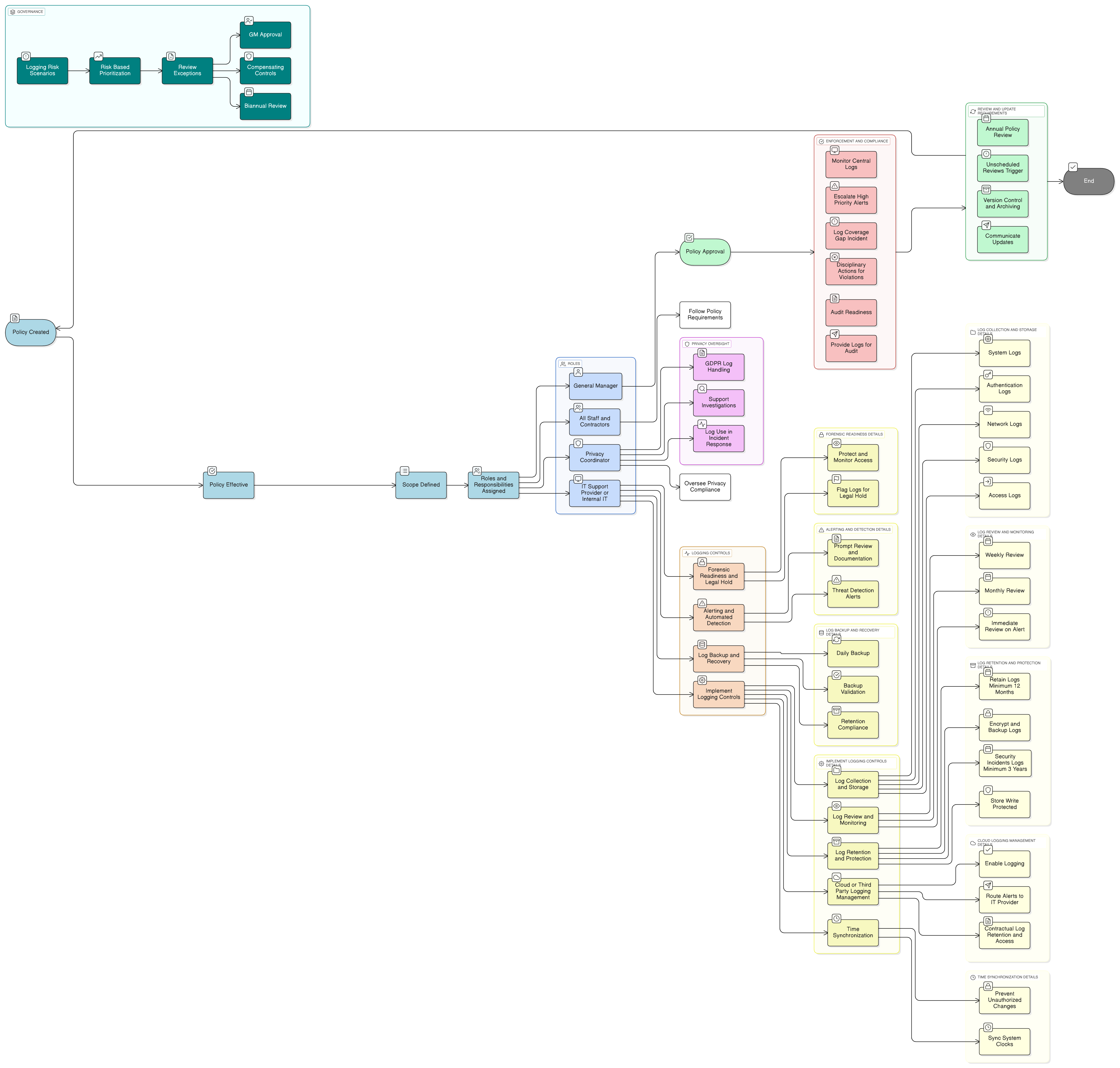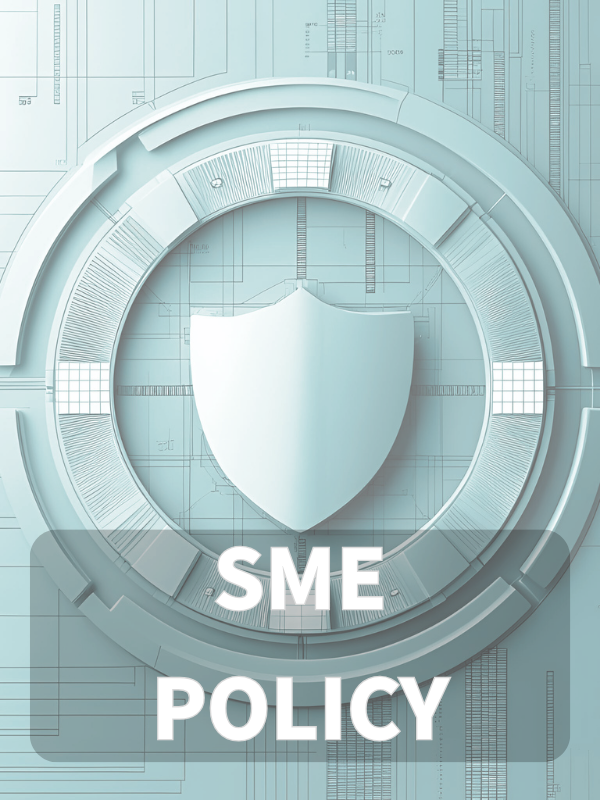Overview
This SME Logging and Monitoring Policy sets mandatory requirements for log collection, review, retention, and protection across all IT systems and users. It ensures compliance with ISO/IEC 27001:2022, GDPR, and other standards, with simplified roles suited for organizations without dedicated IT teams.
Comprehensive Log Management
Defines which events must be logged, retention periods, and secure storage to protect against tampering and loss.
Regulatory Compliance Built-In
Aligns with ISO/IEC 27001:2022, GDPR, NIS2, and DORA for audit readiness and breach response requirements.
Tailored for SMEs
Adapted for organizations without dedicated IT teams, with clear roles for General Manager, IT Support, and Privacy Coordinator.
Read Full Overview
Policy Diagram

Click diagram to view full size
What's Inside
Scope and Rules of Engagement
Required Log Categories
Retention, Access, and Protection Controls
Cloud and Third-Party Logging
Time Synchronization Requirements
Risk Treatment and Audit Readiness
Framework Compliance
🛡️ Supported Standards & Frameworks
This product is aligned with the following compliance frameworks, with detailed clause and control mappings.
| Framework | Covered Clauses / Controls |
|---|---|
| ISO/IEC 27001:2022 | |
| ISO/IEC 27002:2022 | |
| NIST SP 800-53 Rev.5 | |
| EU GDPR |
Article 5(1)(f)Article 32Article 33
|
| EU NIS2 | |
| EU DORA | |
| COBIT 2019 |
Related Policies
Data Protection And Privacy Policy-SME
Ensures that log data containing personal information is managed with integrity, retention, and access safeguards in line with GDPR requirements.
Network Security Policy-SME
Provides the foundation for capturing logs related to firewalls, wireless access, VPNs, and segmentation monitoring.
Secure Development Policy-SME
Ensures that application logs (e.g., for login attempts, errors, and exceptions) are built into software design and operations.
Incident Response Policy-SME
Relies on accurate and complete log data to detect, analyze, and respond to information security events.
Time Synchronization Policy-SME
Ensures consistent and traceable timestamps across all systems, allowing logs to be correlated during investigations.
About Clarysec Policies - Logging and Monitoring Policy - SME
Generic security policies are often built for large corporations, leaving small businesses struggling to apply complex rules and undefined roles. This policy is different. Our SME policies are designed from the ground up for practical implementation in organizations without dedicated security teams. We assign responsibilities to the roles you actually have, like the General Manager and your IT Provider, not an army of specialists you don't. Every requirement is broken down into a uniquely numbered clause (e.g., 5.2.1, 5.2.2). This turns the policy into a clear, step-by-step checklist, making it easy to implement, audit, and customize without rewriting entire sections.
Fast Incident Investigation
Enables rapid log review and forensic readiness, speeding breach analysis and regulatory reporting for small teams.
Cloud & Remote Logging Support
Extends logging controls to cloud platforms, SaaS, BYOD, and remote users, ensuring no gaps in critical event monitoring.
Role-Based Accountability
Assigns log review, alerting, and escalation duties to actual SME roles for clear responsibility and traceable actions.
Frequently Asked Questions
Built for Leaders, By Leaders
This policy was authored by a security leader with 25+ years of experience deploying and auditing ISMS frameworks for global enterprises. It's designed not just to be a document, but a defensible framework that stands up to auditor scrutiny.
